Water
According to research, drinking water regularly can help reduce anemia by helping increase the production of hemoglobin, an iron-containing protein that is responsible for transporting oxygen from the lungs to other organs, including the brain.
In addition, maintaining adequate water intake also helps regulate blood pressure, helping blood circulate more effectively to brain cells, thereby improving cerebral ischemia.
Beetroot juice
Beets are rich in iron and folate – two nutrients that play key roles in the production and maintenance of healthy red blood cells.

Beets are rich in iron and folate – two nutrients that play key roles in the production and maintenance of healthy red blood cells.
In addition, this tuber also has a high content of natural nitrates. In the body, nitrates will convert into nitric oxide - a substance that helps dilate blood vessels, increase circulation and improve blood flow to the brain.
Decaf green tea (caffeine-free)
This drink is often rich in antioxidants, especially catechins, which help improve blood circulation by supporting anti-inflammation, controlling blood pressure and protecting heart health.
In addition, green tea also has the ability to dilate blood vessels thanks to the presence of epigallocatechin gallate (EGCG). This effect can help increase blood flow to the brain, supporting brain function. However, this effect depends on the dosage and the individual's constitution.
Pomegranate juice
According to research, consuming about 500ml of pomegranate juice every day can increase the number of red blood cells and hemoglobin concentration after 2 weeks. This effect comes from the rich iron content in pomegranates.

This fruit also contains many anti-inflammatory substances such as vitamin C, polyphenols, flavonoids... which can help reduce inflammation and protect blood vessels.
Not only that, this fruit also contains many anti-inflammatory substances such as vitamin C, polyphenols, flavonoids... which can help reduce inflammation, protect blood vessels, thereby optimizing the process of transporting blood to the brain.
Guava juice
Vitamin C in guava helps the body optimize iron absorption from food, facilitating red blood cell production.
In addition, guava is also rich in fiber and antioxidants, which help protect blood vessels from atherosclerosis, thereby ensuring the brain receives enough oxygen and necessary nutrients.
Orange juice
Similar to guava, oranges also help the body produce red blood cells, by providing vitamin C and iron.
Oranges also help the body produce red blood cells, by providing vitamin C and iron.
In addition, folate (vitamin B9) in this fruit also has the ability to help stabilize homocysteine levels - an amino acid related to cardiovascular disease and stroke, thereby contributing to optimizing blood circulation to the brain.
Papaya smoothie
Besides folate, papaya also has a high content of vitamin C. Accordingly, this nutrient also has the effect of increasing iron absorption from the diet, thereby helping the body produce more red blood cells and hemoglobin, contributing to improving the condition of cerebral anemia.
Avocado smoothie
In addition to supporting red blood cell production thanks to folate, avocados also help improve cerebral blood circulation and enhance nervous system health thanks to their unsaturated fat, vitamin E and K content.

In addition to supporting red blood cell production thanks to folate, avocados also help improve blood circulation to the brain.
Specifically, monounsaturated fat in avocados helps reduce bad cholesterol (LDL) and increase good cholesterol (HDL), thereby limiting fat accumulation in artery walls, helping blood circulate better to the brain.
Meanwhile, vitamins E and K are powerful antioxidants that help protect blood vessels and brain cells from damage, supporting improved brain health.
Banana smoothie
Bananas are rich in vitamin B6 – a nutrient that plays an important role in the production of hemoglobin, helping the body create red blood cells. In addition, potassium in bananas also helps maintain stable blood pressure, ensuring that blood circulates effectively to the brain, helping the brain receive enough oxygen and necessary nutrients.
Apple juice
Apples are rich in fiber, vitamin C, potassium and antioxidants such as catechin, quercetin... which have anti-inflammatory effects, regulate blood pressure, protect blood vessels and maintain blood flow to the brain.
Kiwi smoothie
Similar to the above fruits, kiwi is rich in vitamin C, folate and antioxidants such as polyphenols, carotenoids...
Similar to the fruits listed above, kiwi is rich in vitamin C.
Strawberry smoothie
When there is anemia, brain cells can be damaged by oxidative stress and free radicals. Meanwhile, strawberries, with high and diverse content of antioxidants such as quercetin, anthocyanin, vitamin C... can contribute to inhibiting free radicals and alleviating oxidative stress.
Coconut water
Cerebral anemia can cause nausea and vomiting, leading to dehydration, electrolyte imbalance and reduced nerve signal transmission efficiency. At this time, patients can consume coconut water to supplement electrolytes such as calcium, potassium, sodium, etc., thereby helping to balance water and maintain nerve impulse transmission, ensuring optimal brain function.
Source: https://giadinh.suckhoedoisong.vn/nhung-do-uong-giup-cai-thien-tinh-trang-thieu-mau-nao-172250416125608648.htm







![[Photo] Closing of the 13th Conference of the 13th Party Central Committee](https://vphoto.vietnam.vn/thumb/1200x675/vietnam/resource/IMAGE/2025/10/08/1759893763535_ndo_br_a3-bnd-2504-jpg.webp)
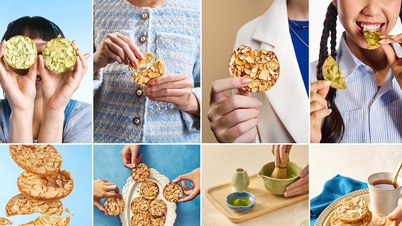





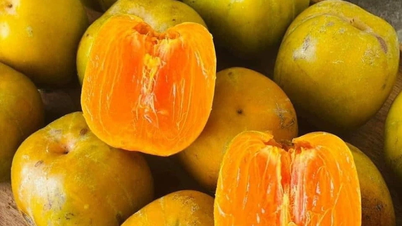



























































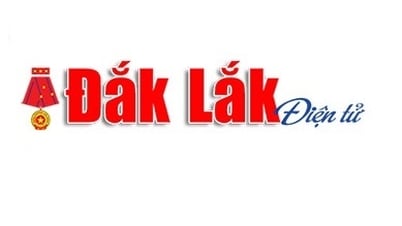




















Comment (0)